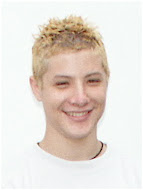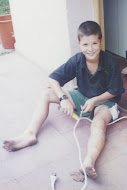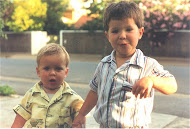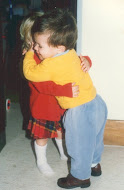I know from being a bereaved parent and being involved in a bereaved parents’ group, that it is very hard to say the ‘right’ thing to people in great pain and it’s all too easy to say something that can highlight the sense of loneliness of the grief journey.
The truth is, that often anything we say, will be wrong, or at least not ‘right’.
The following is an excerpt from an article in ‘A Journey Together,’ which is a newsletter put out by Bereaved Parents USA. It outlines a way of thinking about grief which can help us, the well intentioned, to avoid saying hurtful or even harmful things.
The same theme came up again when our friend Katie had a brain aneurysm. She was in intensive care for a long time and finally got out and into a step-down unit. She was no longer covered with tubes and lines and monitors, but she was still in rough shape. A friend came and saw her and then stepped into the hall with Katie’s husband, Pat. “I wasn’t prepared for this,” she told him. “I don’t know if I can handle it.”
This woman loves Katie, and she said what she did because the sight of Katie in this condition moved her so deeply. But it was the wrong thing to say [to Katie’s husband, suffering more deeply]… Susan has since developed a simple technique to help people avoid this mistake. It works for all kinds of crises: medical, legal, financial, romantic, even existential. She calls it ‘Ring Theory’.
The whole article is called ‘Practical Advice’ by Susan Silk and Barry Goldman. It is on page 4 of the Summer 2013 BP/USA newsletter which you can download as a pdf here.










